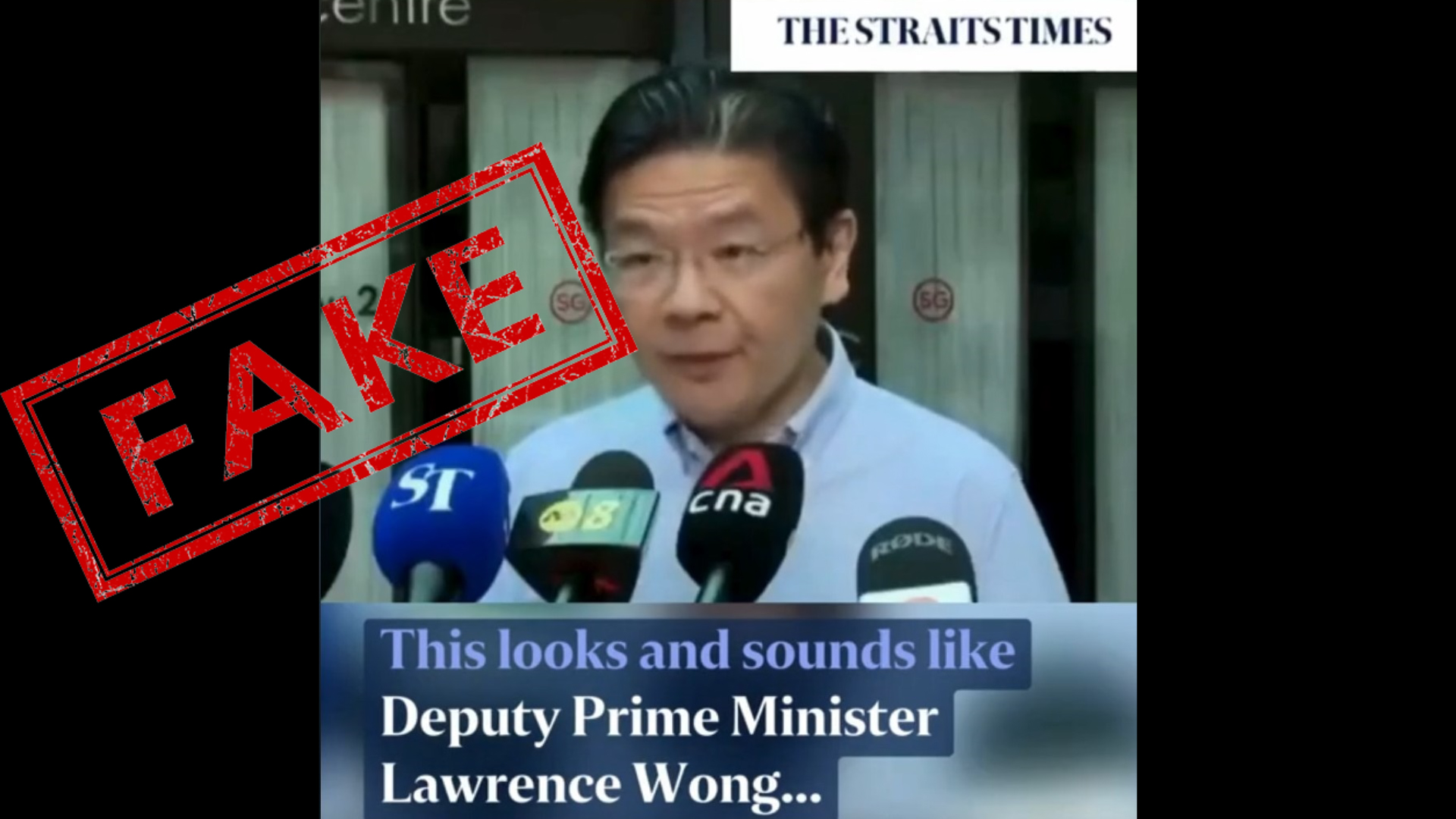SINGAPORE: A deepfake video of Deputy Prime Minister Lawrence Wong is being spread on social media, where he announces an investment opportunity. The video also has a logo of The Straits Times (ST) in the top right-hand corner.
On its TikTok account, ST showed the deepfake ad featuring DPM Wong. It’s an altered form of an interview or remarks the Deputy Prime Minister made with the press that sounds very much like Mr Wong.
@straitstimes In the video, DPM @lawrencewongst’s mouth is noticeably altered to synchronise with a fake voice-over promoting an investment scam. #sgnews #deepfake #fake #scammeralert
In it, he announces an “investment project” from November this year purported to guarantee everyone will “receive monthly dividends with minimal investment.”
It’s uncanny because Mr Wong’s “speech” is perfectly synced with the video, creating an illusion of reality that could fool viewers, especially those unfamiliar with these Artificial intelligence (AI) technologies. However, the longer the video plays, the more apparent it is that it is a fake.
ST, which reported on the deepfake video on Wednesday (Dec 27), has said that a police report has been filed regarding the matter.
A spokesperson for SPH Media had said, “It has come to our attention that there is a video attributed to The Straits Times, featuring Deputy Prime Minister Lawrence Wong endorsing commercial projects, circulating online. We urge members of the public to stay vigilant and not circulate videos of unknown sources.”
Earlier this month, DPM Wong took to Facebook to warn against such deepfakes.


“Some have alerted me to recent scam posts and messages. There are deepfakes of me endorsing commercial products, and also misinformation circulating on various networks that the government is looking to reinstate a circuit breaker. These are all falsehoods. Let’s stay vigilant and discerning online!” he wrote on Dec 11.
As far back as 2019, Prime Minister Lee Hsien Loong already expressed concern over deepfake technology.
“Such AI programs can be easily trained to mimic voices and speech patterns from public sources like interviews and YouTube videos. Some programs are available for free, so anyone can download and use deepfake software to recreate anyone’s voice.
We have to adapt quickly. Tech companies are developing ways to detect deepfake audio and video. Meanwhile, we should be discerning about what we come across online, whether or not it seems legitimate. Always be careful. If in doubt, check first before you proceed,” he said. /TISG
Read also: Scammers using deepfakes of Ng Kok Song & Sybil Lau to con S’poreans

